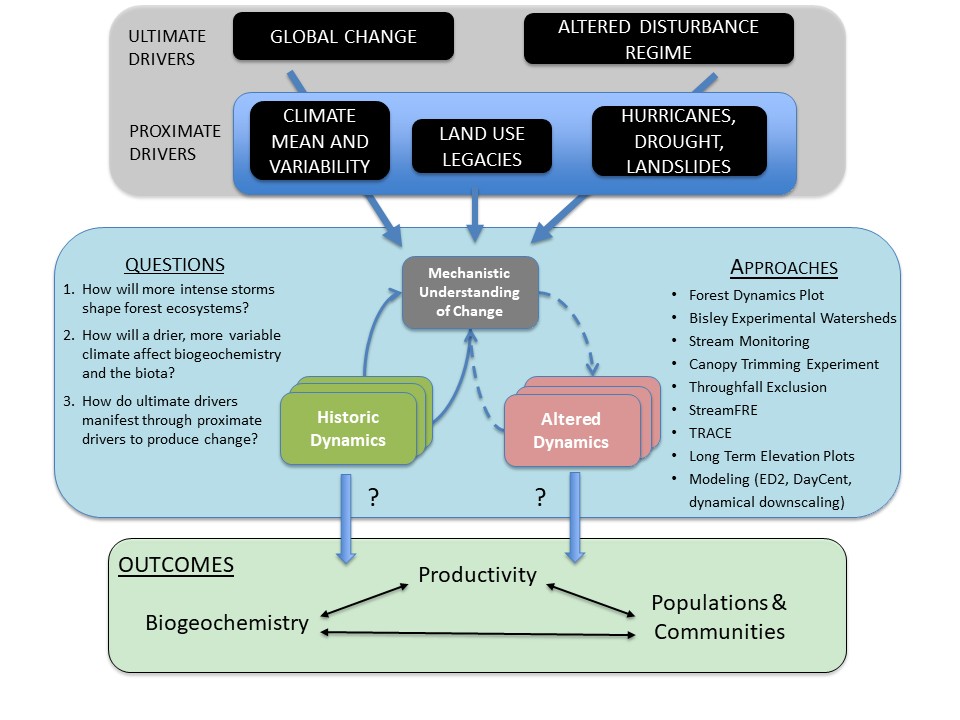
In 1988, Luquillo (LUQ) became the only tropical terrestrial site in the Long-Term Ecological Research (LTER) Network. The site is uniquely valuable as a forested mountainous landscape on a tropical island in the midst of a Caribbean biodiversity hotspot, a natural laboratory for understanding ecosystem change in the tropics. LUQ-LTER focuses on the effects of intense disturbances (hurricanes, landslides and drought), forest harvesting and long-term climate patterns on biota and biogeochemical cycling within this landscape. By understanding how these cycles respond to natural and human disturbances, scientists can supply critical information to manage and conserve tropical forest ecosystems globally.
Luquillo research builds on a long and rich history. The U.S. Forest Service pioneered research on tropical forest timber management and reforestation in the Luquillo Mountains in the 1940s. Long-term research plots installed during that time eventually led to the establishment of the Luquillo Experimental Forest (LEF) in 1956. In the 1960s, the Atomic Energy Commission sponsored the Rainforest Project. In the context of an experiment to measure the impacts of gamma radiation on tropical forests, the project provided what was then the most detailed understanding of forest metabolism, nutrient cycling, energy flows, and population dynamics of a tropical forest. Subsequently, the U.S. Department of Energy continued to support ecosystem research in LEF until 1988 through the Center for Energy and Environment Research at the University of Puerto Rico.
Using integrated theoretical, experimental, and observational approaches, LUQ-LTER provides an innovative and comprehensive scientific framework for evaluating the management of tropical ecosystems affected by a increased climate variability. The program includes both terrestrial and aquatic studies, from the peaks of the Luquillo Mountains to the coastal ecosystems of San Juan. It encompasses strong gradients of both climate and land use through a multidisciplinary effort involving population and community ecologists, microbiologists, aquatic ecologists, ecosystem scientists, and social scientists. Research has revealed that LEF, like most tropical forests globally, is a mosaic of stands and reaches with different land-use legacies, ranging from old-growth communities to highly altered population and community structures, each with their own associated ecosystem characteristics.
Not only has the research improved our understanding of montane tropical forest ecosystems; it has also provided a foundation for complementary research efforts. These include the National Science Foundation’s Critical Zone Observatories (CZO) and Urban Long Term Research Areas (ULTRA) programs; the U.S. Geological Survey’s Water, Energy and Biogeochemical Budgets (WEBB); and the Center for Tropical Forest Studies (CTFS) in its comparisons of tropical forests around the world. LUQ-LTER continues to use an expanding knowledge of the forests and streams of the Luquillo Mountains to foster a broader understanding of the principles that structure forested montane ecosystems in both temperate and tropical climates.
